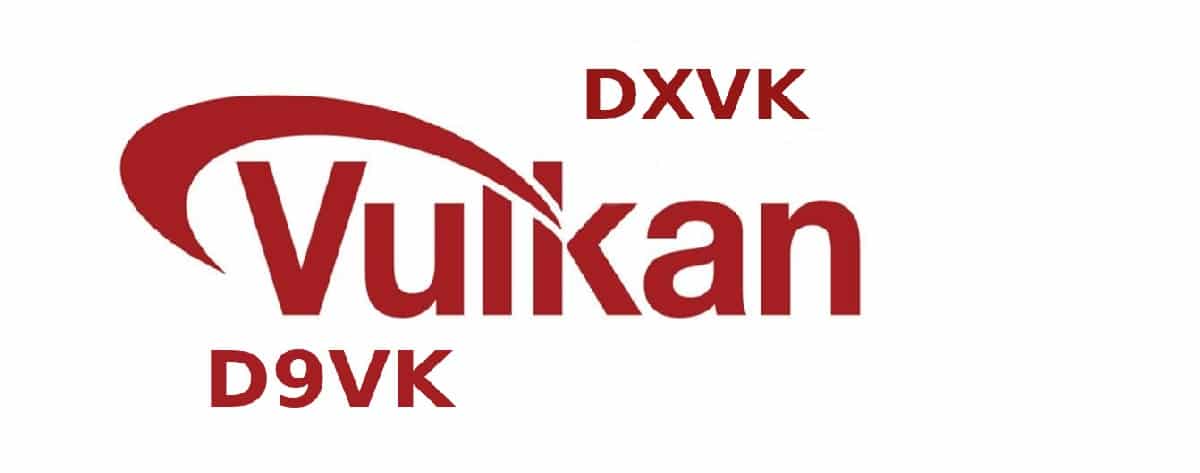
is just given to know the release of the new version of DXVK 1.10, version in which made some optimization improvements that help some games and engines a lot, as well as code improvements that have helped a lot in energy consumption.
For those who still do not know about DXVK, they should know what it is one of the tools included in the Steam Play function from Steam. It is a fantastic tool thate can convert Microsoft DirectX 11 and DirectX 10 graphics calls to Vulkan, the open source graphics API that is compatible with Linux. To use DXVK, in addition to Wine and Vulkan, you obviously need a Vulkan-compatible GPU.
While DXVK is mainly used on Steam Play, but it is not the only place where Linux users can take advantage of this fantastic technology. It also contributes the Vulkan-based D3D11 implementation for Linux and Wine, Regarding performance and optimization when running Direct3D 11 games on Wine, as they also provide support for Direct3D9.
Main new features of DXVK 1.10
Redundant thread synchronization drivers used when loading resources in D3D11 and D3D9 implementations were removed in this new version, this change significantly improved the performance of Assassin's Creed: Origins and other games based on the AnvilNext engine, and also had a positive impact on the performance of Elex II, God of War and GTA IV.
It is also highlighted that optimized use of D3D11_MAP_WRITE for resources loaded on the GPU, improving the performance of Quantum and potentially other applications.
As well as execution of the UpdateSubresource operation has been optimized to update small fixed buffers. The change had a positive impact on the performance of God of War and possibly other games.
Another notable new feature is that useful information for diagnosing performance issues, such as timing information, has been added to the on-screen debug interface (HUD).
Of the other changes that stand out from this new version:
- Processing of load resources and intermediate buffers in D3D11 has been sped up. The change reduced CPU load in some games.
- Removed GPU sync code from using busy-waiting, which has reduced power consumption on mobile devices in some games.
- Added a fallback to call 3D11On12CreateDevice, which previously caused applications to crash.
- Improved performance for Total War: Warhammer III, Resident Evil 0/5/6, Resident Evil: Revelations 2.
- Fixed issues in ArmA 2, Black Mesa, Age of Empires 2: Definitive Edition, Anno 1800, Final Fantasy XIV, Nier Replicant, The Evil Within.
Finally if you are interested in knowing more about it About this new release, you can check the details In the following link.
How to add DXVK support to Linux?
DXVK can be used to run 3D applications and games on Linux using Wine, acting as a higher-performance alternative to Wine's built-in Direct3D 11 implementation that runs on OpenGL.
DXVK requires the latest stable version of Wine to run. So, if you don't have this installed. Now we will only have to download the latest stable package of DXVK, this one we found In the following link.
wget https://github.com/doitsujin/dxvk/releases/download/v1.10/dxvk-1.10.tar.gz
After having made the download now we are going to unzip the package just obtained, this can be done with from your desktop environment or from the terminal itself by executing in the following command:
tar -xzvf dxvk-1.10.tar.gz
Then we access the folder with:
cd dxvk-1.10
And we execute the sh command to run the install script:
sudo sh setup-dxvk.sh install
setup-dxvk.sh install --without-dxgi
When installing DXVK in a prefix of Wine. The advantage is that Wine vkd3d can be used for D3D12 games and DXVK for D3D11 games.
Also, the new script allows the dll to be installed as symbolic links, making it easier to update the DXVK to get more Wine prefixes (you can do this via the –symlink command).
How will you see the folder DXVK contains two other dlls for 32 and 64 bits these we are going to place them according to the following routes.
Where "user" you replace it with the username you use in your Linux distribution.
For 64 bits we put them in:
~/.wine/drive_c/windows/system32/
O
/home/”usuario”/.wine/drive_c/windows/system32/
And for 32 bits in:
~/.wine/drive_c/windows/syswow64
O
/home/”usuario”/.wine/drive_c/windows/system32/